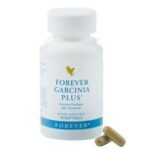You’re considering starting a dietary supplement routine, but where do you begin? You’ve got health goals in mind, and you’re eager to take the first step. Before you dive into the world of vitamins and minerals, it’s essential to identify what you want to achieve – whether it’s boosting energy, supporting immune function, or fueling your fitness journey. By pinpointing your priorities, you’ll be able to choose the right supplements that align with your needs, diet, and lifestyle. But that’s just the beginning – there’s more to consider, and we’ll explore that next.
Identify Your Health Goals
Once you’ve identified your goals, prioritize them.
You may have multiple goals, but focus on the most important ones first. This will help you determine which supplements to take and how to track your progress.
Remember, your health goals will serve as a guide for your supplement routine, so it’s essential to get this step right. Take your time, and don’t rush through this process.
The more specific and focused you are, the better your chances of success.
Choose the Right Supplements
Three key factors will influence your supplement choices: your health goals, your diet, and your body’s unique needs.
You’ve already defined your health goals, so now it’s time to consider how your diet supports or hinders those goals. Make a list of the nutrient-dense foods you eat regularly and identify any gaps.
For instance, if you’re vegan, you may need to supplement with vitamin B12 or omega-3 fatty acids.
Next, think about your body’s unique needs.
Are you experiencing energy crashes or digestive issues? Do you have a family history of certain health conditions? These factors can help you determine which supplements will be most beneficial.
Research different supplements that align with your needs and goals.
Look for products from reputable manufacturers that have undergone third-party testing and have minimal additives.
Read labels carefully and avoid supplements with excessive fillers or artificial ingredients.
Understand Supplement Interactions
Most people take multiple supplements daily, but few consider how these products interact with each other and their medications.
You might be taking a vitamin D supplement to boost your immune system and a fish oil supplement for heart health, but are they compatible? Some supplements can amplify or counteract the effects of others, leading to adverse reactions or reduced efficacy.
For instance, taking vitamin C with iron supplements can enhance iron absorption, but taking it with copper supplements can decrease copper absorption.
You should also be aware of potential interactions between supplements and medications. Certain supplements, like St. John’s Wort, can interact with antidepressants, blood thinners, and other medications, causing serious side effects.
You’re responsible for ensuring the supplements you take are safe and effective. Research each supplement, consult with your healthcare provider, and read labels carefully to minimize the risk of adverse interactions.
Create a Supplement Schedule
Now that you’ve considered how your supplements interact with each other and your medications, it’s time to think about when to take them.
A supplement schedule helps you stay consistent and ensures you’re getting the most out of your supplements. Start by identifying the best times of day to take each supplement based on its purpose and your lifestyle.
For example, if you’re taking a morning energy booster, take it with breakfast to give you a kickstart. If you’re taking a sleep aid, take it 30 minutes before bedtime.
Next, create a routine that works for you. Decide whether you’ll take your supplements with meals or between meals, and choose a specific time of day that you can commit to.
You can set reminders on your phone or put your forever living aloe gelly benefits in a visible spot to help you remember. Be realistic about your schedule and adjust as needed.
Consistency is key, so find a routine that you can stick to in the long term. By creating a supplement schedule, you’ll be more likely to take your supplements regularly and achieve your health goals.
Monitor Progress and Adjust
Your supplement routine is in place, but it’s not a set-it-and-forget-it deal.
You need to monitor your progress and adjust as needed. This is crucial to ensuring you’re getting the most out of your supplements and minimizing potential side effects.
Start by tracking your supplement intake, dosage, and timing.
Keep a log or use an app to record any changes you notice, whether positive or negative. Pay attention to how your body reacts to the supplements, and take note of any improvements or setbacks in your overall health and wellbeing.
Regularly review your progress and adjust your routine accordingly.
If you’re not seeing the desired results, you may need to tweak your supplement schedule or dosage. Be patient, as it may take some trial and error to find the perfect balance.
Remember to consult with your healthcare provider if you have any concerns or questions.
Conclusion
You’ve got a solid plan in place, now it’s time to put it into action! Stick to your supplement routine, track your progress, and make adjustments as needed. Remember, consistency is key, so stay committed and don’t be afraid to reach out to a healthcare provider if you have questions or concerns. By following these steps, you’ll be well on your way to achieving your health goals and feeling your best.




